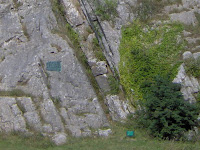This was an encouraging meeting where a number of small groups meeting in Coventry and Market Harborough came together and Tony and Felicity Dale had been invited to speak.
The small, organic meetings in the area come together like this every other month in a room at the Ricoh Arena.

Today we began with Psalm 40:5 'Many are your wonders, too many to recall' and Psalm 139. The Lord knows us intimately and he has clear plans for our lives. Mark shared that he and Becca will be emigrating to St Louis in the USA in the next few days and although they have mixed feelings, they sense that this is part of Father's plan for them.
Giles reminded us that despite the distractions life brings, we can train ourselves to tune in to the Holy Spirit.
Felicity and Tony told us they've been on the organic church road for ten or fifteen years now whereas in the UK we are just beginning the journey. They explained the background to their going, how abandoned they had felt for nine years after arriving, and how things had started to change with a study of business principles in Proverbs and some breakfast meetings for children.
They also explained that truth has been restored in wave after wave of change in church life down the ages. The wave of organic church, making disciples and reproducing families of believers has been (and continues to be) absolutely huge. Especially in India, China and the Middle East but also now in America growth has become very rapid.
In the Reformation period the Bible was put into the hands of ordinary people. But today the church is being put in the hands of ordinary people! We need to be 'looking outside our walls', meeting in Starbucks for example. We heard stories about people who had done extraordinary things resulting in abundant new followers of Jesus. Sometimes just turning something around can make a big difference. Instead of trying to tell my story I could invite people to tell me their stories. The greatest need is for ordinary people to get out there, not just 'special' people.
Movements are far more effective than individual programmes. Why? Because movements contain the seed of the next generation within the current generation. They are self-propagating. But we need to lay the right foundations with an emphasis on ordinary people and relationships. 'No empire building, no control, no glory' captures the mood. We can put money behind building on godly principles. Getting to know one another is essential. Much of the church thinks we're crazy and the world has no idea what's going on.
It's really not about 'simple church', it's about the Kingdom. The Spirit will speak to us in the UK, but we need to get people together and agree on the foundations. The world won't just come to our churches or to our homes - that's why we need to go out!
Please note - this article is only a superficial account. But the meeting was recorded and you can hear what Tony and Felicity said for yourself (recording provided by simplechurch.co.uk).
< 24th September 2011 | Index | 10th October 2011 >






